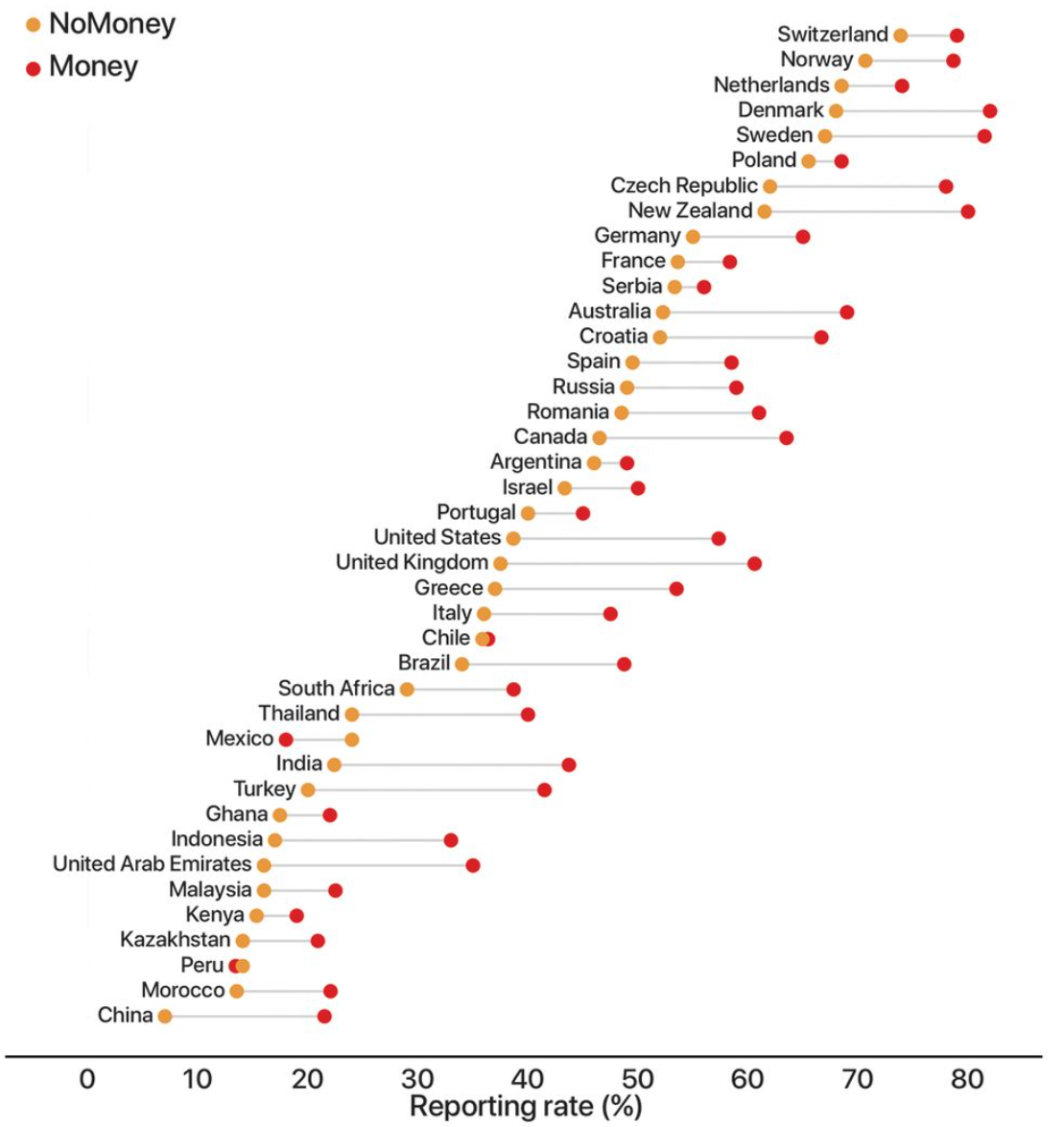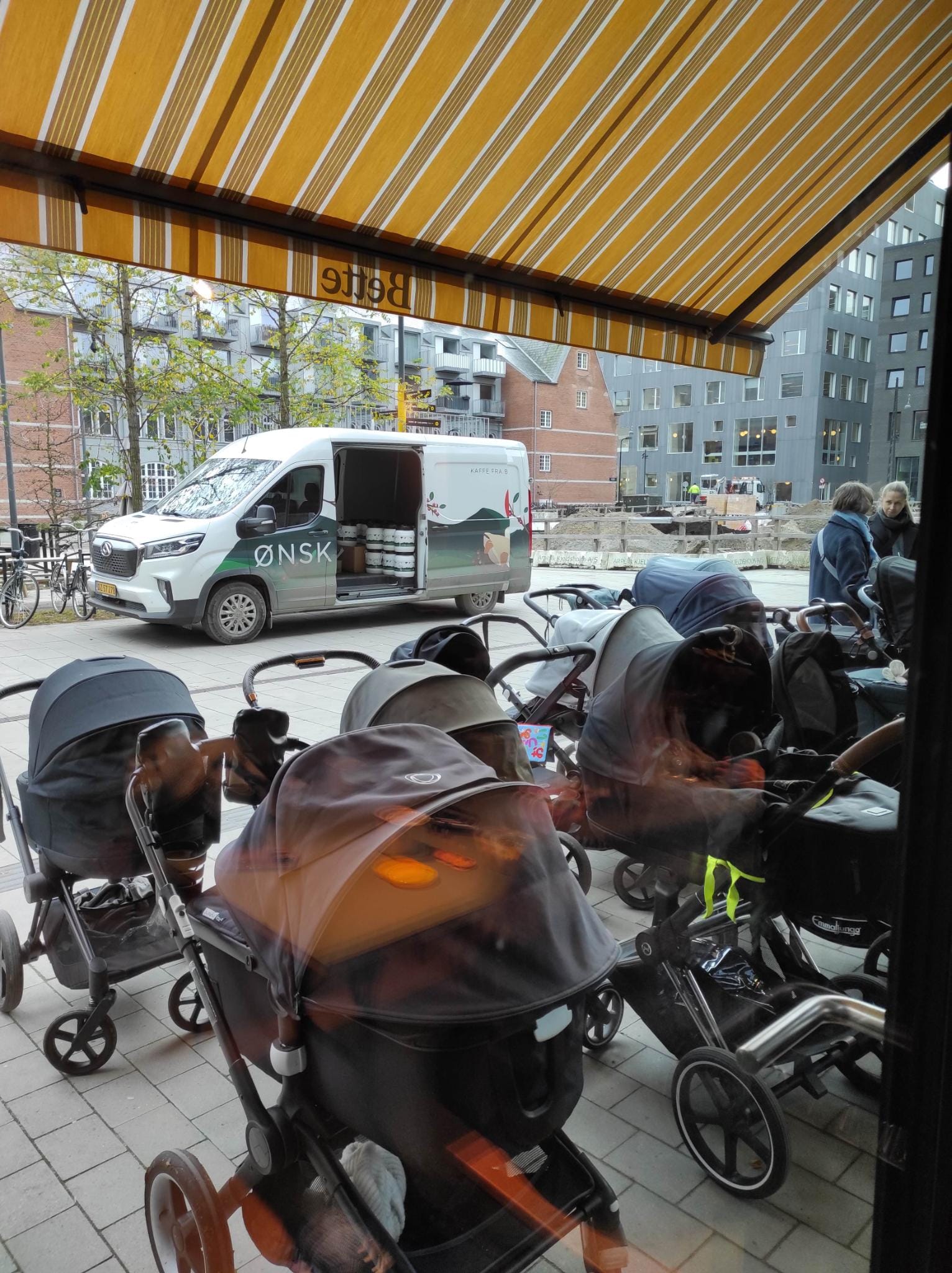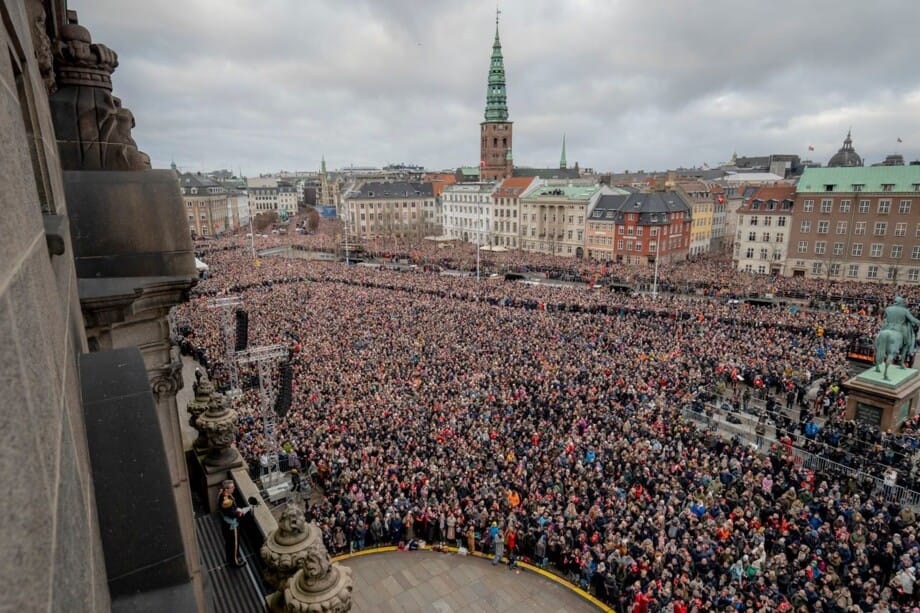Denmark: the good, the bad, and the ugly. Part 1/5: Society and politics
From safety and work-life balance to challenges in healthcare and immigration, discover the paradoxes behind one of the world’s happiest countries. A deep dive into what makes Denmark both inspiring and complex.

Introduction
Denmark, both as a nation and a representative of Scandinavia, is steeped in clichés, and feeds many fantasies. Every year, it is mentioned in global headlines as being one of the happiest in the world [1]. So is it then the promised land that we all fall in love with and never depart from? Or is that image just an illusion? Drawing from personal experience, I set out to deep dive into the multiple aspects of Denmark to unveil the Good, the Bad, and sometimes, the Ugly.
This article is the first of a series of blog posts. It focuses on Denmark's societal and political landscape. By "society", I refer to the systems in place that shape collective life and impact its people. Individual attitude – how the Danes express themselves within their culture– will have its own dedicated space in an upcoming post.
1. Safety
Soon after arriving in Denmark, people start noticing that they feel safe (see also box below). As my former roommate and a childhood friend both pointed out in comparison to Paris, women, in particular, often feel secure walking home alone at night without being bothered. Besides, if you lose something, there's a high likelihood you'll get it back (see picture below).

However, Copenhagen presents a paradox when it comes to safety. Despite its overall sense of security, the city faces challenges with organized crime. Gangs, primarily involved in drug trafficking, operate in day light– most famously in Christiania (although things have taken a major turn this year as locals have taken steps to close Pusher Street [2]). Rival outlaw clubs like Hell's Angels (with many branches active in other countries), Black Cobra or Bandidos [3] have a long history of territorial disputes and competition over their markets. While they only fight against each other, they regularly make headlines. Many of us living in the city have heard about shootings that have happened close to home, or cycled past a crime scene lit by police lights at night.
2. Work-life balance and workplace
The rumors about Denmark's societal approach to work-life balance and family are actually pretty true. It feels like there is a family-first principle applied everywhere.
Working hours
In Denmark, the standard workweek is 37 hours, and this limit is typically respected to the hour, regardless of whether you're a blue or a white collar. While exceptions exist (e.g. M&A and Management Consulting demand more commitment worldwide; some private companies may expect more from their employees), this otherwise nationwide practice creates a very pleasant balance between professional and personal time. It's completely normal for a parent to leave work at 15:30 to pick up their kid from kindergarten, without anyone questioning whether they've taken a half-day off.
That said, Danish work days are more intense in my experience compared to, say, a workday in France. Lunch breaks are brief, often limited to 30 minutes, and meetings tend to be held back-to-back as decision-making in Denmark relies heavily on consensus (I've never heard the verb "to align" used as much as in my job in Copenhagen). After a 9-to-5 in Denmark, I can feel more drained than after a 9-to-7 in Paris, where there's typically more time to unwind, socialize with colleagues, and reflect on tasks. I remember feeling more productive at the end of the day. Of course, this isn't always the case, but the Danish approach to efficiency can sometimes come at the cost of a sense of spaciousness and connection in the workday.
Hierarchy
Workplace culture in Denmark is characterized by a remarkably flat hierarchy. When I started my new job in Copenhagen, I was surprised by how informal and approachable everyone was. Colleagues addressed each other by first names regardless of their level in the company, and it felt natural to reach out to my Senior Chief Specialist- someone 5 levels above me- without any barriers or formalities.
This informality extends beyond the workplace to Danish society as a whole, up to the royal ranks:
- the former Queen Margrethe II of Denmark has been famously down-to-earth, even buying her coffee cup herself at the coffee shop neighboring her palace;
- the now Queen of Denmark and her nephew once played basketball in a street park with some of my close French friends.
- her husband the King Frederik IV, now the reigning monarch, is also admired for his accessibility. He even participates in his own annual running race "Royal Run", blending seamlessly with the public.

This closeness may partly stem from small size of the country and the relatively modest prestige of its monarchy compared to, say, the British Royal Family.
However, it is worth noting that while the sense of hierarchy may feel minimal, it still exists. In large corporations, for example, management structures can be highly layered. Despite the approachable culture, top executives often remain remote- my own CEO is for instance 6 tiers above my position.
3. Family
Pregnancy, birth and beyond
Probably driven by the low fertility rate of 1.5 in 2023 [6], the level of support for future and young parents is top notch in Denmark.

- Pregnancy is seen as a natural process requiring no unnecessary medical attention, contrasting with some much more medicalized approaches seen in countries like France. They encourage a lot to consider natural birth methods and breastfeeding. While this hands-off approach might initially feel surprising, it becomes entirely normal over time. For instance, first-time mothers are only allowed 1 to 2 nights at the maternity ward, while the others are expected to leave the hospital 4 to 6 hours after birth, provided there are no complications!
- New mothers are automatically connected by their local commune to a group of 5 other mothers of the same area and of similar age. These "mother groups", either Danish or international, provide a supportive network to share experiences and spend time together during maternity leave.
- A specialized nurse (sundhedsplejske) visits your home at key intervals to check on both the baby and the parents, offering guidance during the critical early days of parenthood.
Parental leave
While parental leave policies may be equally generous in the Baltic countries or similar in traditionally family-oriented nations like the UK or Spain [7], Denmark stands out for its highly favorable approach to maternity, paternity, and shared parental leave. Parents are entitled to a shared leave period of up to one year, with a minimum of three months reserved for each parent. Many employers go a step further, covering salary gaps to ensure six months of full pay for both parents.

4. Education
Denmark's education system also stands out quite a bit compared to other countries. Although my own experience and research is very limited, I can mention a few things:
- Parents are very much involved in their children's education, starting as early as daycare. They actively engage with institutions to clarify their standpoint and actively discuss potential changes if they feel like it's important. For instance, the website of a randomly selected daycare in central Copenhagen (Krudhuset) have specific pages about their sugar policy, their sleep policy, and their commitment to the Free from Mobbing initiative. The "funny" side of this can be that some parents can be quite over-the-top: there's for instance this Instagram account (in Danish) which collects all the crazy exchanges that can take place on "Aula", the app which is used in most institutions to facilitate communication between parents and teachers.
- In general, the education system in Denmark is "based on self-governing institutions and an independent, decentralised responsibility for education" [8]. Many of the things we can hear about the Danish system outside of Denmark are true, like the fact that the Danish primary- and secondary-level school "is not an examination-oriented school. [...]. School failure is an almost non-existing phenomenon in the Danish Folkeskole" [9]. School days often end early, around 14:00, allowing children to attend sports clubs, other extracurricular activities. School curriculums for older children typically have cooking and home economics classes [10]. English education begins as early as the first grade. Despite these strengths, parents still voice concerns. Some worry their children's schedule is too packed, others are frustrated by the high amount of hours taught by substitute teachers, and so forth ... These topics, and the broader nuances of the Danish education system, deserve a dedicated blog post of their own.

However, it is puzzling to see some bad traits that individuals develop out of this educational system, like what I perceive as a clear lack of politeness from children or adults. I'll discuss more of this in another post in this series.
5. Healthcare
The great thing about the Danish healthcare system is that it's essentially completely free. Never have I had to open my wallet when visiting my GP, blood test centers, or the hospital.
Another brilliant thing, which also proves that it should be feasible for other countries to achieve that, is that everything is digitalized. For instance, there's no paper prescription and you just need to scan your health card (sundhedskort or "yellow card") at the pharmacy to get your prescription drugs. Blood test results can be consulted on the official app, where most of your medical history is also accessible.
The health insurance card has been recently dematerialized and can be carried as an app; a recent work from the national Digitalization Agency.
But, and it's a big BUT, the health system can be really cumbersome and actually expensive. Long list of complaints:
- The most basic thing such as getting an appointment at your GP can be a pain in the a**: telephone hours for short-term appointments are typically from 8 to 9am, attended to by an assistant to the doctor and not the doctor herself, and are meant to be for acute needs (akut). In other words, you can be denied getting an appointment fast if the problem you describe on the phone is perceived as not urgent while it would immediately get you an appointment in (any?) other country. Several friends have reported to me the same story of having broken their cruciate ligaments and having first been told by their GP to take a paracetamol and relax. You really have to exagerate to get proper attention sometimes.
- A corollary of the above, is that same-day appointments focus on that one pressing topic which has triggered the appointment. They are expeditive, sometimes lacking depth and competence. You can't talk about anything else than that topic you came for. You are left to call again and get an appointments in several weeks, if you manage to convince the assistant that your concern deserves an appointment.
- Certain things like dentistry for adults or presciption glasses can actually cost a fortune. Pricing sheets for densists can be "googled" easily: a routine check involving a single-tooth x-ray and teeth cleaning can easily cost you 100$, which is shocking for someone coming from Taiwan where the same thing which can actually feel like it's made with higher quality, would cost 10% of the price. Glasses are also reimbursed the bare minimum, contrasting with France where you would get your luxury brand mount with premium glasses for free (this is however a fact where France is actually scandalous in the other way!).
6. Politics
Denmark often stands out globally for its progressive policies and leadership on critical societal issues. It was among the first countries to legalize same-sex unions in 1989, paving the way for marriage equality in 2012. On the environmental front, Denmark is a trailblazer, with ambitious plans to become carbon-neutral by 2050. The country’s offshore wind industry, led by the state-owned, global low-carbon energy pure-player Ørsted, has become a model for the world, supplying a significant portion of Denmark’s electricity and exporting expertise internationally.
Adding to its legacy of breaking taboos, Denmark was also the first country in the world to legalize pornography in 1969. This move was emblematic of its liberal approach to individual freedoms and the belief in open, progressive societal norms.
Adding to its strengths, Danish politics is marked by a remarkable level of harmony. Compared to countries like France, the divide between left- and right-wing parties is far less pronounced, resulting in a more collaborative and pragmatic approach to governance. This moderation reflects a shared commitment to societal welfare and sustainability, which transcends party lines.
Danish pride in its cultural heritage is another defining feature. The monarchy, while constitutional and largely ceremonial, is an enduring symbol of national identity. The royal family, with its blend of accessibility and tradition, plays a unifying role in Danish society, embodying a cultural legacy that many Danes deeply value.

On the other hand, Denmark has one of the strictest immigration policies in Western Europe. This has been particularly noticeable since the early 2000s, with policies becoming increasingly restrictive under various governments. The basic requirements to get the Danish citizenship include for instance:
- Legal residence in Denmark typically for 9 years (there are some exceptions)
- Passing the Danish language test at level B2, which is quite advanced and requires significant study.
- Passing the Danish citizenship test (Indfødsretsprøven)
- Being self-supporting (no receipt of public benefits) for 4 out of the last 5 years
The Danish approach reflects a political consensus that emerged in the last couple of decades, prioritizing limited, highly selective immigration with a strong emphasis on integration and self-sufficiency. While one could praise the system for promoting integration, one could also criticize it for being way too restrictive, and closing doors to a country otherwise appearing open or avant-garde on the multiple aspects mentioned earlier.
Things can quickly get ugly and unfair: if, say, a 23-year-old American citizen married to a Dane loses her highly-paid job, she is very likely to be kicked out of the country as:
- They don't fulfill the 24-year rule
- They might struggle to find another job within 3-6 months and the other spouse may not be able to show sufficient income to cover both
- The authorities may find that the couple doesn't have stronger ties to Denmark than to any other country
Denmark's approach to asylum seekers pushes the ugliness even further. One of the most controversial policies involves relocating asylum seekers to Lindholm, a remote island formerly used for researching animal diseases [12]. This policy has drawn criticism from human rights organizations and many Danes, who see it as contradictory to the nation’s values of compassion and fairness.
Danish politics is a paradox—leading the way in environmental action and LGBTQ+ rights while grappling with challenges in representation and inclusion. It reflects a country striving to balance progressive ideals, cultural pride, and the pressures of political pragmatism.
7. The happiest?
All of the above can help explain why Denmark has recurrently evaluated as one of the happiest in the world (see Table 1). What's not to like in a safe, family-oriented society with a high level of trust?
Table 1: Denmark in the ranking of all World Happiness Reports
| Report Year | Rank | Country |
|---|---|---|
| 2024 | 1 2 |
Finland Denmark |
| 2023 | 1 2 |
Finland Denmark |
| 2022 | 1 2 |
Finland Denmark |
| 2021 | 1 2 |
Finland Denmark |
| 2020 | 1 2 |
Finland Denmark |
| 2019 | 1 2 |
Finland Denmark |
| 2018 | 1 2 3 |
Finland Norway Denmark |
| 2017 | 1 2 |
Norway Denmark |
| 2016 | 1 | Denmark |
| 2015 | 1 2 3 |
Switzerland Iceland Denmark |
| 2013 | 1 | Denmark |
| 2012 | 1 | Denmark |
| Source: [11] |
There's certainly some truth in it, but as with any report of that kind, it should interpreted having in mind the methodology used. The report is based on a Gallup survey, i.e. people are asked to rate their own lives [13]. We can then argue that multiple cultural biases could be involved:
- Evaluation system at school i.e. how people tend to give a score between 0 and 10
- Self-evaluation i.e. how people respond when being asked about their situation
- Definition of happiness, i.e. how happy is happy?
Paradoxically, there seems to be a correlation between places which rank highest in happiness polls, and places that have the highest suicide rates [14]. I also heard from many people that Denmark had the world's highest consumption of antidepressant per capita. Looking at the data, it is actually less dramatic than the statement suggests: in 2022, Denmark ranked number 10 out of the 32 countries of the OECD ranked by consumption of antidepressants per capita [15]. Worse than France (19) or Italy (24) but better than the podium made of Iceland (1), Portugal (2) and the UK (3).
In my opinion, the relative flatness of the society thanks to the redistribution of wealth / taxation means that more people are above "the threshold", and the welfare society is quite well-designed given what the country sits on. Danes are probably more easily satisfied with what they have and consider themselves happy. It's embedded in their culture, somehow. I've heard countless expats tell how much they miss the mountains (myself included), or hate the long winter, making them as such unhappy in Denmark. But I've noticed how the Danes know how to seize the day: yes it can rain relatively often but when the sun is out, everybody's outside on a stroll; bars are extremely lively in the winter and they get reborn in the summer when enjoying a barbecue literally everywhere.

Open end
From safety and work-life balance to progressive politics, Denmark boasts many remarkable qualities that make it an appealing place to live. However, like any society, it has its complexities, and beneath its polished surface lies another side—one that is sometimes more nuanced and, at times, unexpectedly darker.
Does this reflect your own experience? Is there any other aspect of Denmark worth mentioning? Let me know in the Comments section or by using the Contact form ☺
References
- [1]: CNN (2024), Opinion: The secrets of being the world's second happiest country, https://edition.cnn.com/2024/03/27/opinions/denmark-second-happiest-country-firth/index.html
- [2]: BBC (2024), Christiania: A Copenhagen hippy commune fights back against drug gangs, https://www.bbc.com/news/world-europe-68740282
- [3]: TV2 (2022), [In Danish] After decades of shootings and murders, what have Hells Angels become?, https://nyheder.tv2.dk/2022-04-24-efter-aartier-med-skyderier-og-drab-hvad-er-der-blevet-af-hells-angels
- [4]: United Nations Office on Drugs and Crime, https://dataunodc.un.org/
- [5]: Numbeo, https://www.numbeo.com/crime/rankings_by_country.jsp
- [6]: Denmark Statistics, Fertility (retrieved Dec 12, 2024)
- [7]: Wikipedia (retrieved Sept 8, 2024), Parental Leave, https://en.wikipedia.org/wiki/Parental_leave#Parental_leave_policies_by_countries
- [8]: Ministry of Children and Education, General overview of the Danish education system - Self-governance, https://eng.uvm.dk/general-overview-the-danish-education-system/self-governance
- [9]: Ministry of Children and Education, The Folkeskole - Classes and Class Teacher, https://eng.uvm.dk/primary-and-lower-secondary-education/the-folkeskole/classes-and-class-teacher
- [10]: Ministry of Children and Education, The Folkeskole - Subjects and Curriculum, https://eng.uvm.dk/primary-and-lower-secondary-education/the-folkeskole/subjects-and-curriculum
- [11]: World Happiness Report, Analysis, https://worldhappiness.report/analysis/
- [12]: Time (16-01-2019), An Island for ‘Unwanted’ Migrants Is Denmark’s Latest Aggressive Anti-Immigrant Policy, https://time.com/5504331/denmark-migrants-lindholm-island/
- [13]: World Happiness Report, FAQ - How are the ranking calculated, https://worldhappiness.report/faq/#what-is-the-original-source-of-the-data-for-figure-21-how-are-the-rankings-calculated
- [14]: Tara Parker-Pope (2011), The New York Times, Happiest Places Post Highest Suicide Rates, https://archive.nytimes.com/well.blogs.nytimes.com/2011/04/22/happiest-places-post-highest-suicide-rates/
- [15]: OECD Health Statistics, Pharmaceutical consumptions > Antidepressants, https://data-viewer.oecd.org/?chartId=9f8cb57d-959f-4c0c-a4a8-f399caa3a491
